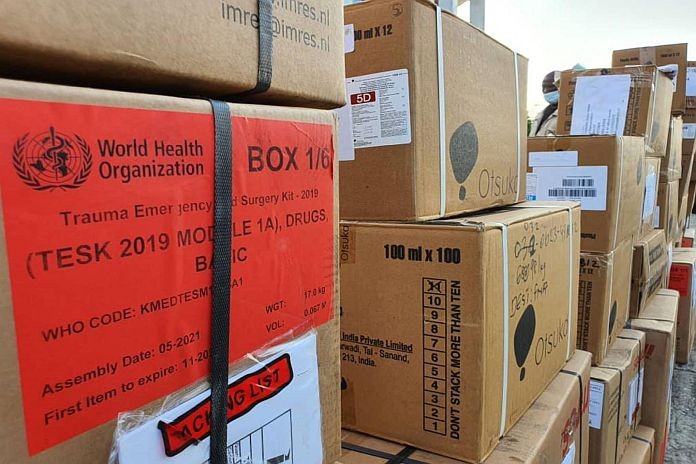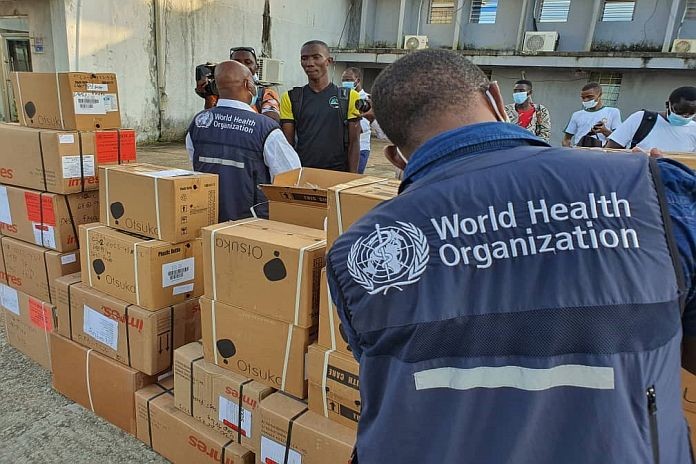FREETOWN, Sierra Leone – World Health Organization (WHO) has delivered 6.6 metric tons of emergency medical supplies to support the government and people of Sierra Leone in responding to the November 5 fire disaster that killed and severely injured hundreds of people in Freetown. These lifesaving commodities were mobilized within 24 hours of WHO receiving a request from the Sierra Leonean authorities for urgent support to respond to the mass casualty incident.
“The first 72 hours in a mass casualty like the one we are now dealing with is very important. The response so far has been swift as the national authorities and partners were able to quickly mobilize available local stockpile to start care for the people affected. Shipment of the 6.6 metric tons of the emergency medical supplies that WHO has provided is to support the government of Sierra Leone to close the gaps in meeting medical needs of those who have been injured”, says Dr Steven Shongwe, WHO Representative in Sierra Leone.

First batch of one metric ton of the kits was delivered on November 7 while the remaining 5.6 metric tons were successfully delivered to the ministry of health and sanitation a day later. The emergency medical kits contained medicines, fluid infusions, disinfectants, autoclave sterilizer, dressings for burns and gloves among others. These commodities can treat as many as 600 people with severe burns.
Beyond these supplies, WHO is also supporting the country through coordination and providing expert advice and has provided initial funds from the Contingency Funds for Emergencies to facilitation operations activities on the ground.
The tragic fire incident occurred when a truck hit a loaded fuel tanker in a road traffic accident late on November 5 leading to a fuel leakage that burst into flames in a crowded area. The victims mostly included pedestrians, passengers in vehicles that were held in heavy traffic due to the accident and roadside traders.
The National Disaster Management Agency is leading on the overall humanitarian coordination of the response while the Public Health National Emergency Operations Centre (PHNEOC) has been activated to level two to coordinate the public health component of the disaster response. Medical and psychosocial support teams have been instituted to care for the injured, bereaved families and the affected community
WHO is working closely with other health development partners to support the government in responding to the disaster. The Organization is also mobilizing international medical experts to close the gap in availability of specialist health personnel such as plastic surgeons, physiotherapists, and clinical dieticians. This deployment will supplement the health personnel who have worked tirelessly since the disaster to treat the victims. The first batch of the medical experts are expected to arrive in Sierra Leone by the middle of this week.





